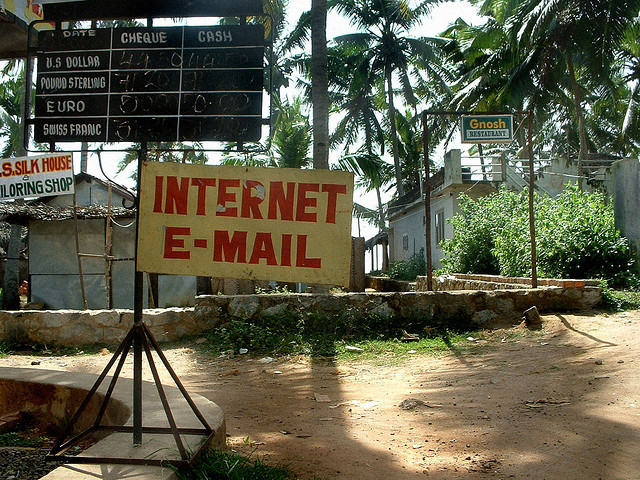 India is the “Land of Contradictions,” a country teeming with opposing forces that are coming to a head around government censorship of the internet. In the Times of India this morning, Google’s executive chairman Eric Schmidt published an article that calls for a free and open Web on the subcontinent.
India is the “Land of Contradictions,” a country teeming with opposing forces that are coming to a head around government censorship of the internet. In the Times of India this morning, Google’s executive chairman Eric Schmidt published an article that calls for a free and open Web on the subcontinent.
“Now is the moment for India to decide what kind of internet it wants for them: an open internet that benefits all or a highly regulated one that inhibits innovation,” he wrote.
Schmidt is currently traveling around Asia and published this article in response to efforts by India’s government to censor and control the internet. This is a hot button issue in India right now as conservative officials and politicians want to regulate (and quash) material that is deemed offensive and inflammatory. However, India is the world’s largest democracy. It is home to a younger generation that is less traditional than its forebears and an erupting technological community. that requires freedom to flourish.
“In 10 years, it will be almost impossible to describe to any child in India what life was like before the internet,” Schmidt wrote. “Only about two billion of the world’s seven billion people have an internet connection, and I believe the remaining five billion will get one in the next decade. Almost one billion of them will come online in India.”
India is one of the most vibrant emerging markets for tech development and startups, but it is also a society riddled with social unrest. The Indian government began cracking down on internet freedom in 2008 after the Mumbai bombings. It passed the Information Technology Act to expand censorship and monitoring capabilities and has put pressure on internet service provers and private companies to remove certain types of information, under threat of imprisonment.
Then in 2011, the New York Times reported that the Indian government asked companies like Google, Facebook, and Yahoo to “prescreen user content from India and to remove disparaging, inflammatory or defamatory content before it goes online.” Flagged content ranges from personal postings that are deemed blasphemous, pornograpaphic, or encouraging immorality. The Department of Telecom also tried to block video torrent sites like Vimeo, The Priate Bay, and Torrentz.
Internet freedom came to the forefront again in August of 2012 as a result of tension in Assam, a northeastern state in India where there is conflict between Muslims and Hindus. The Indian government ordered more than 300 specific URLs blocked from Facebook, Twitter, YouTube, Worpress, Wikipedia, and even the Times of India for allegedly promoting violence. Tempers were flaring as a result of hate message, misinformation, and online rumors which led to unrest and at least 300,000 people fleeing.
Schmidt’s article sought to show that the government should view the internet as a way to improve and develop the country, rather than threat to national security and morals. It can be used to disseminate knowledge and enhance education and dialogue, as well as to make the transportation system more efficient
“The most striking Indian internet innovations won’t come from big institutions or companies moving online, however,” he said. “They will come from Indians solving local problems. We know that India’s internet infrastructure allows Indian engineers to solve the problems of small businesses in other countries. If India plays its cards right, we’ll soon see Indian engineers and Indian small businesses tackling Indian problems first, then exporting the solutions that work best.”
Rather than using its resources to policing the web, the Indian government could “reap a huge dividend” from the internet’s growth and use it to address some of the pressing and persistent problems facing the country today.
Later this week, Schmidt will speak on the future of the internet at the Big Tent Activate Summit in New Delhi, an event held jointly by the Guardian, Google, and MediaGuru.
Photo credit: mattwi1s0n/Flickr
VentureBeat's mission is to be a digital town square for technical decision-makers to gain knowledge about transformative enterprise technology and transact. Learn More
